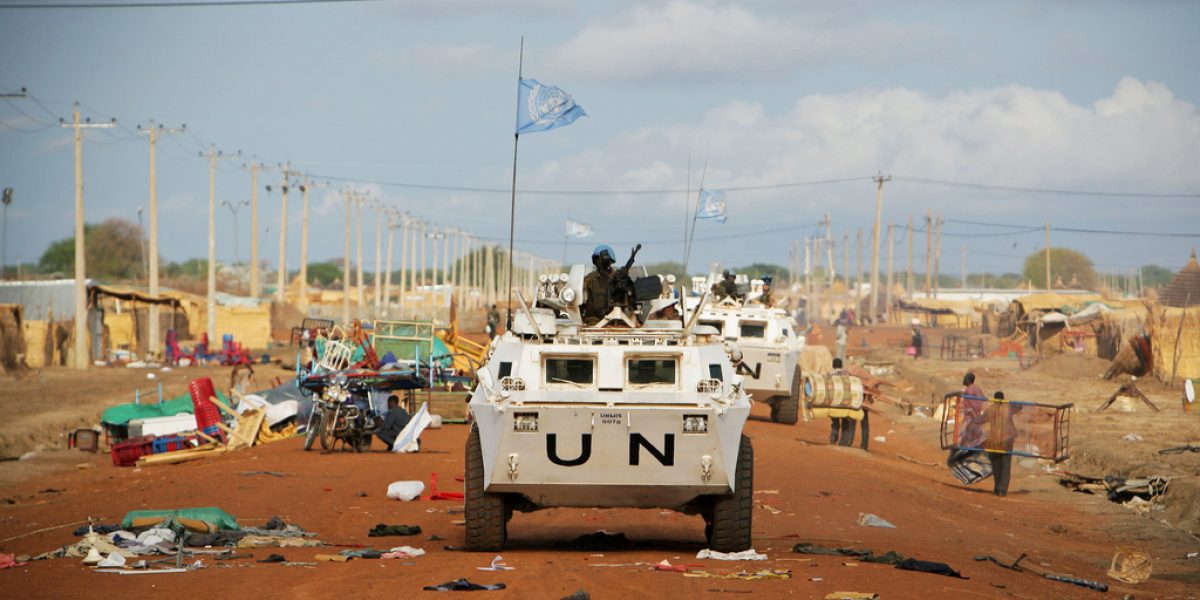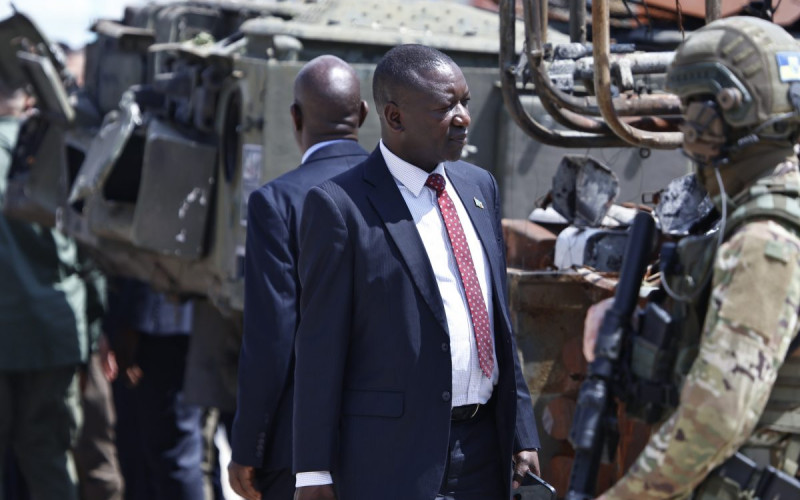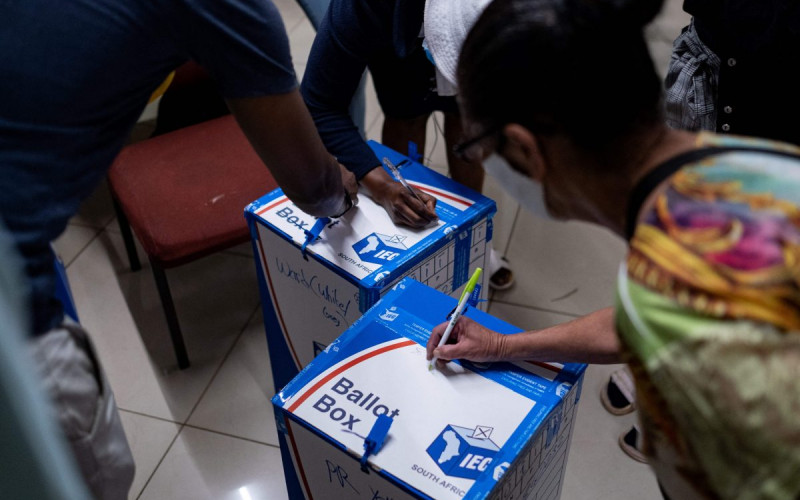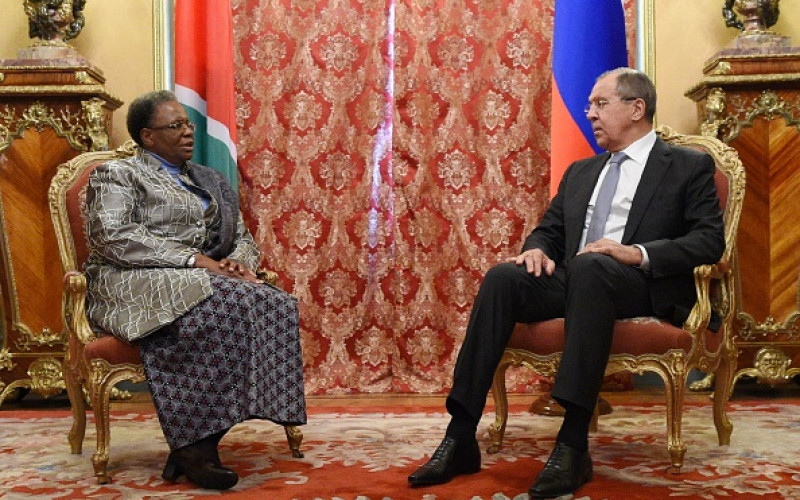Furthermore, there is evidence to suggest that they are becoming increasingly involved in privatisation tenders for ports of entry and telecommunications in Africa, which will facilitate their illicit activities, while at the same time providing them with a cloak of legitimacy. This phenomenon is rife in conflict zones such as the Democratic Republic of Congo (DRC), Liberia and parts of Sierra Leone and neighbouring countries that may provide support to various factions in the war.
These crime networks comprise a relatively small group of key individuals that are able to operate with seeming impunity. This can be attributed to a number of factors:
Organised crime networks operate globally through a myriad of front companies and are able to adapt their operations to meet any threat from national law enforcement agencies, particularly in weak or failed states. They frequently use different countries for different purposes – as a supplier, depot or banking centre.
Individuals within these networks have extensive links within governments and rebel movements in Africa and elsewhere, which may inadvertently or wilfully facilitate their activities.
Co-operation between law enforcement agencies internationally, where they are reasonably effective, is sometimes hampered by a lack of international or national legislation or poor communication between agencies within and outside a country. In Africa, law enforcement generally is weak or non-existent in areas that the state does not control.
International organisations such as the United Nations Monitoring Mechanisms on sanctions, whilst able to ‘name and shame’ individuals involved in the illicit trade, do not have the power to impose criminal sanctions. Most countries have not criminalised sanctions busting, or if they have, few have used this legislation.
Multilateral initiatives such as the Palermo Convention against Transnational Crime, rely on governments to adopt national legislation criminalising this form of activity, enhancing mutual legal assistance and extradition. Whilst most countries have ratified the Palermo Convention, progress in institutionalising measures at national level has been slower.
Until recently, there have been no prosecutions of organised crime figures who have flouted United Nations embargos on the trade in commodities such as weapons.
In Italy, however, the first test case against an organised crime middleman, Leonid Minin, who allegedly violated an arms embargo on Liberia is soon to begin. In Belgium, which has instituted a Commission of Inquiry to hear evidence of its national’s involvement in the illegal extraction of minerals from the DRC authorities have issued arrest warrants on money laundering charges for Victor Bout (an alleged arms trafficker in Africa). Belgium and other European countries have also frozen the accounts of Zulfa Karim Panju and Jacques van den Abeele, who are accused of involvement in a major coltan smuggling operation linked to Aziza Kulsum (alias Mrs Guamali), who headed the rebel RCD-Goma coltan monopoly from November 2000 to April 2001 in the Democratic Republic of Congo. They have been charged with forgery and money laundering gold bullion from South Kivu . Whilst this indicates a significant shift in the political will in Europe to apprehend the middlemen involved in African countries, few African countries have attempted to arrest and prosecute offenders on charges of ttrafficking in weapons or other commodities or violating sanctions regimes. When prosecution does occur, law enforcement officials still face enormous challenges in bringing the middlemen to justice.
A TALE OF TWO MIDDLEMEN
Leonid Minin
Leonid Minin is the first middleman to face charges for extra-territorial weapons trafficking and violation of the UN sanctions regime against Liberia. He is alleged to be among those responsible for assisting President Charles Taylor of Liberia to transform his allies, the Revolutionary United Front rebels in Sierra Leone, within two years (1997-1999) from a rural army of 400 men into a conventional army of 15,000 to 20,000 men.
Leonid Minin (55 years old) was born in Odessa (Ukraine) but emigrated to Israel in the 1970s. He has seven known aliases and five passports. He has been the subject of investigations in many European countries.
Whilst he was still in the former U.S.S.R in the 1960s Minin was investigated for racketeering activities before emigrating to Israel. In the mid-1970s, he was arrested in Germany for falsifying identity documents and was suspected of theft of art. Soon thereafter, he moved to Bolivia, Switzerland, Germany, Monaco and Italy, where he was under investigation for dealing in oil products related to a criminal network comprising members of the Russian mafia. He allegedly had deposited money laundered from oil thefts in Switzerland. In 1993, Minin, whilst living in Italy, established a timber company in Switzerland and opened offices in Monrovia (Liberia) and Tel Aviv. His Liberian operation, Exotic Tropical Timber Enterprises, was made possible by his relationship with President Charles Taylor and it is alleged that he received tax discounts for gifts to Taylor and his family. At that time, Minin was under investigation for laundering drug money through the foreign bank accounts of Italian businesses. The following year, Minin came under investigation for a bribe paid to a Member of Parliament to obtain Belgian residence and for his company’s (Galaxy Energy) links to criminal networks involved in the oil trade in Odessa. By 1997, French security services were regarding Minin as a key member of a Ukranian organised crime group. He was also prohibited from entering Monaco. A year later, Italian police concluded that Minin was the head of a Ukranian criminal network that was associated with international drug and weapons trafficking, money laundering and extortion. In 1999, Minin was alleged to have transported a shipment of 68 tons of weapons from the Ukraine, via Burkino Faso, to Liberia on his private plane, registered in the Cayman Islands and operated by another company owned by Minin in Monaco (LIMAD). He was implicated in a further shipment of 113 tons, ostensibly intended for Cote d’Ivoire, to Liberia and Revolutionary United Front (RUF) rebels in Sierral Leone. Documents regarding these transactions were found in Minin’s possession when he was arrested in 2000 on charges related to the posession of cocaine. The weapons allegedly came from Aviatrend, a Russian company owned by suspected Russian arms dealer, Valery Cherny, and Minin paid the funds to their accounts in Cyprus and New York. Aviatrend was also allegedly the recipient of the Former Yugoslavian President Milosevic’s laundered funds. The weapons transported included inter-continental missiles.
On 5 August 2000, Minin was arrested in Milan on a tip off and found in possession of cocaine, 1,500 documents and diamonds worth $500,000. Although he had been under surveillance, the Italian authorities acknowledge that the arrest was a lucky break. Authorities were able to detain and convict him on the drug charges whilst analysing the documents found in his room, which provide details of his trade in timber, oil, diamonds and weaponry. He faces a twelve-year sentence if convicted. However, his defence is arguing that the case should be withdrawn as the crime was not committed in Italy and that he is too ill to stand trial. Italian prosecutors argue that legislation does allow for Minin to be prosecuted for violating UN sanctions, even if the crime took place in another jurisdiction. If the case goes to trial, it is likely to rely on the documents found in Minin’s possession that confirm some of the details of illicit shipments of weapons to Liberia and his ownership of the aircraft used to transport them. If Minin had not kept such extensive records of his transactions with him and had not been arrested on another charge, it is unlikely that sufficient evidence to prosecute him would have come to light. Victor Bout
‘For the record, I am not, and never have been, associated with al Qaeda, the Taliban or any of their officials, officers, or related organizations. I am not, nor are any of my organizations, associated with arms traffickers and/or trafficking or the sale of arms of kind [sic] anywhere in the world. I am not, nor is any member of my family, associated with any military or intelligence organizations of any country.’
Victor Bout
One of the most notorious alleged weapons dealers to Africa, Victor Bout, has been implicated in all the UN reports on sanctions-busting to rebels in Angola, Sierra Leone and the Liberian government as well as in the UN Expert Panel reports on the illegal exploitation of natural resources in the DRC. He has been implicated in trafficking former Eastern bloc weaponry to 17 African countries as well as allegedly to the Taliban in Afghanistan and Abu Sayyaf in the Phillipines. He is said to be able to arrange finance, money laundering, diamond evaluations and sophisticated weaponry. Lee S. Wolosky, a former United States National Security Official, who was involved in an interagency operation to attempt to disrupt and close down Bout’s operation said.
There are a lot of people who can deliver arms to Africa or Afghanistan but you can count on one hand those who can deliver major weapons systems rapidly. Victor Bout is at the top of that list.
Despite the UN report’s intention to ‘name and shame’ the middlemen and corrupt elites involved in various forms of illicit trade, Bout like many others remains at large and continues to deny all charges against him.
Victor Bout (35 years), it is claimed, was an interpreter in a military transport aviation regiment in Vitsebesk (Belarus) until 1991 when his unit was disbanded at the end of the Cold War. He operates under at least five aliases and owns a maze of airline, cargo and freight forwarding companies operating 60 planes that have been registered in Belgium, the United States, Liberia, South Africa, Swaziland, United Arab Emirates, Rwanda and the Central African Republic. When his companies are subjected to scrutiny he moves his operations elsewhere.
In 1991 Bout worked as a trade representative in Angola until he starts operating an air cargo company, Air Cess, which he registered in Liberia and operated out of Ostend, Belgium. In 1993, Bout moved to the United Arab Emirates and re-registered Air Cess. He began to buy more aircraft allegedly from middlemen in the Urals. In 1995, Bout and Michel-Victor Thomas established Trans Aviation Network, operating out of Ostend in Belgium and Sharjah in the United Arab Emirates. Bout left Belgium after it was reported in the local media that he had sold 40 tons of weapons to the Northern Alliance in Afghanistan. Abdul Latif, Bout’s contact in the Northern Alliance confirmed that Bout assisted them with obtaining ammunition. Bout allegedly earned $50 million from weapons sales to the Taliban, via Pakistan, prior to UN sanctions. Operating with a power of attorney over Vial, a company registered in Delaware, Bout allegedly sold five aeroplanes to the Taliban and may have been linked to a further five sales through other companies, Flying Dolphin and Santa Cruz Imperial. American authorities believe that he may have continued to supply the Taliban after sanctions were imposed and shipments may have included toxic chemicals. Whether any of these weapons were destined for Al Qaeda is still unconfirmed.
In 1996,UN experts claimed that Bout was shipping arms from Bulgaria and Romania, to Hutu forces in the DRC, using Belgian registered aircraft. Action could not be taken because the operation was extra-territorial. Rwanda still allegedly owes Bout $21 million for this weaponry.
In 1997 he registered Air Pass in South Africa, operating with Norse Air and Pietersburg Aviations Services and Systems, and later that year moved his operation to Swaziland. Between 1997 and 1998, it is alleged Bout’s companies supplied $14 million of light and heavy weaponry from Bulgaria, via Togo, to UNITA in Angola, which was under sanctions. General Jacinto Bandua of UNITA has confirmed that Bout was their main supplier. The aircraft were registered in Liberia.
In 1998, Air Cess was re-registered in the United Arab Emirates, employing about hundred Russian nationals. Bout also registered Centrafrican Airlines in Bangui in the Central African Republic with an operations office at Sharjah, operating some of the aircraft used in Swaziland. In 2001, Centrafrican Airlines and San Air General Trading merged with CET Aviation Enterprise in the Ajman free zone of the United Arab Emirates and San Air also registered in Texas. In 2000, it is alleged that the Liberian International Ship and Corporate Registry, based in the United States, paid $925,000 to San Air for weapons and transportation, whilst that country was the subject of UN sanctions.
Bout was said to be still operating through South Africa as late as March 2001 but using smaller front companies ostensibly owned by his former associates. In the same year, he registered Centrafrican Airlines in Equatorial Guinea. In 2002, the UN suggested that Bout operates two companies in the DRC but uses front companies to shield his activities. Air Cess is now run by his brother and also operates from Pakistan.
Seven years of international efforts to prosecute Victor Bout have yet to bear fruit.
Victor Bout’s activities allegedly came to the notice of the United States as early as 1995 when they intercepted conversations that connected him with weapons shipments to the Great Lakes region. With the partial United States disengagement from Africa at the end of the Cold War, a former State Department Official, Stephen Morris, suggests that US diplomatic and intelligence capacities deteriorated dramatically at a time when inter-linked conflicts such as in Sierra Leone and Liberia escalated with the assistance of private criminal networks, frequently from the former Eastern bloc.
Before Bout could be charged with 146 breaches of civil aviation regulations in South Africa in 1998, he moved his operations to Swaziland. In Swaziland, authorities grounded 43 of his aircraft because of inadequate documentation but these aircraft reappeared in Bangui in the Central African Republic. Bout was under investigation in South Africa but it is not clear whether harrassment by civil aviation authorities or an ambush on his vehicle in Johannesburg precipitated his flight.
In Belgium, the SGR (Belgian Military Intelligence Service) began an operation against Bout, code named Boomerang, in the mid-1990s on suspicion that he was supplying weapons in return for diamonds to African countries under UN sanction.
In 2000, aware of the lack of international and national instruments to prosecute Bout, the United States embarked on a campaign to disrupt his enterprise. In the same year, Bout was charged with forging documents in Bangui, when his aircraft used the markings of the state-owned airline on a flight to Gabon, and convicted in abstentia to 2 years. He was absolved of the charges on 28 June 2000 without explanation. The Director of Civil Aviation in Bangui was, however, sentenced to a year in prison for fraud and forgery.
When it was reported that Bout had armed the Taliban, and possibly also Al-Qaeda, prior to the 11 September attack on the World Trade Centre, interest in his activities grew. The US and Britain tracked his shipments and tried to prevent him from buying weapons in Eastern Europe. South Africa was requested to charge Bout under its anti-mercenary legislation but there was insufficient evidence to make a case. After pressure from the Uniteds States, Bout’ and his brother were barred from the centre of their operations in the United Arab Emirates. Previously, the Emirates had agreed to freeze his assets if given details of his money trail, but US offficials allegedlty refused to do so for fear of compromising their sources.
In a raid on eighteen homes in Brussels in February 2002, a number of associates of Bout, who include diamond dealer, Sanjivan Rurpah, were arrested. Information gathered led Belgium to issue an international warrant of arrest for Bout on money laundering charges in the same month. An attempt to arrest him on a commercial airline in Athens in late February 2002 failed . Ruprah, who was released on bail escaped and was rearrested in Italy in August. He has again been released whilst awaiting trial for criminal conspiracy for printing counterfeit Congolese francs in Argentina for the rebels in Eastern DRC and possession of false passports (He is banned by the UN from travel under sanctions against Liberia due to his alleged involvement in the illicit trade in diamonds).
Whilst Bout appeared on Ekho Moskvy radio station in Moscow, Russian authorities were denying that Bout was in the country. Later, Interpol in Russia said that the allegations against him would be checked and then a decision taken whether to arrest him. The Russian Federal Security Services claim that they have not received any official notification of the international warrant against Bout. The Russian media have suggested that Russian authorities are reluctant to extradite Bout because Belgium has barred Russian nationals from entering the country. Russia apparently regards Bout as a legitimate businessman in Africa. Others suggest that his alleged links to the Russian mafia may protect him from extradition.
John Peleman, a United Nations expert in illegal arms trading, has suggested that the failure to arrest Bout can be attributed to his influence in most countries in which he has operated.
I am not ruling out the possibility that one integral component of Bout’s business involved bribery of officials not only in Eastern Europe but everywhere his company was represented.
In general, his relationship with officials of all countries in which his company was registered- from Swaziland to Miami, in the United States- merits some detailed analysis.
Bout claims that he is a legitimate air cargo operator, who has leased his aircraft to other individual and companies including the US Operation Restore Hope in Somalia and United Nations Peacekeeping mission to East Timor. Whilst former rebel leaders, such as UNITA generals, confirm that he was their main supplier of weaponry, the manner in which he ran his operation makes it difficult to link him to specific shipments. The money trail and money laundering charges may, if he is extradited, be the most substantial evidence against him.
Conclusion
The cases of Leonid Minin and Victor Bout illustrate the sophistication of organised crime networks, particularly from the Eastern Bloc, that have the ability to conduct illicit trade in several different commodities in far-flung corners of the world using a maze of companies and tax havens. The case studies also suggest that as individuals in these networks became known they further obscure their operations like Bout, for example, who allegedly operates through smaller intermediaries, who are not as yet known. It is evident that law enforcement agencies, even in developed countries, are largely unable to confront the challenge that these networks present.
The efforts of law enforcement officials are frustrated by weak international protocols on gun control, with many countries having a vested interest in the arms trade. Few countries have enacted legislation criminalising sanction- busting, or if they have, used it. The Minin case is an exception in this regard but his possible sentence (12 years) is not an effective detterent to others involved in these networks. More effective national legislation to prevent organised crime activity is still required in many countries. More international instruments and cooperation is required to provide oversight over civil aviation and ports of entry in conflict areas. This could include a centralised agency to authenticate end-user certificates so as to minimise forgeries.
Law enforcement agencies are hampered by poor coordination both within their agencies and with external actors particularly with regard to sharing intelligence. UN reports on sanctions busting indicate that many of the individuals involved in this activity are known. Prosecution of sanctions busters and other organised crime activity, however, can only succeed if law enforcement agencies begin to declassify information on transnational organised crime networks and share it through organisations such as Interpol.
The exposure of the middlemen is likely to bring to light the activities of corrupt political and military elites in Africa and provide a basis for the freezing of their assets such as in the case of Sani Abacha of Nigeria, whose offshore funds will be returned to Nigeria.
The post 11 September environment is an opportunity to reconsider the international regime that provides the space for transnational organised criminal networks and terrorist organisations to operate without fear of apprehension. The stance taken by the United States in using military tribunals and extra-judicial processes in apprehending Al-Qaeda suspects would appear to be a tacit acknowledgement that the environment is not conducive to effective due process. Anti-terrorism legislation will facilitate the apprehension of middlemen, who frequently also supply terrorist networks, with its encroachment on banking secrecy and extensive asset forfeiture provisions. In addition, the coalition building that has taken place amongst security services across the world, since September 11, is an encouraging sign that where there is a political commitment to apprehending the middlemen, extensive progress can be made in at least disrupting their activities if not prosecuting them.






